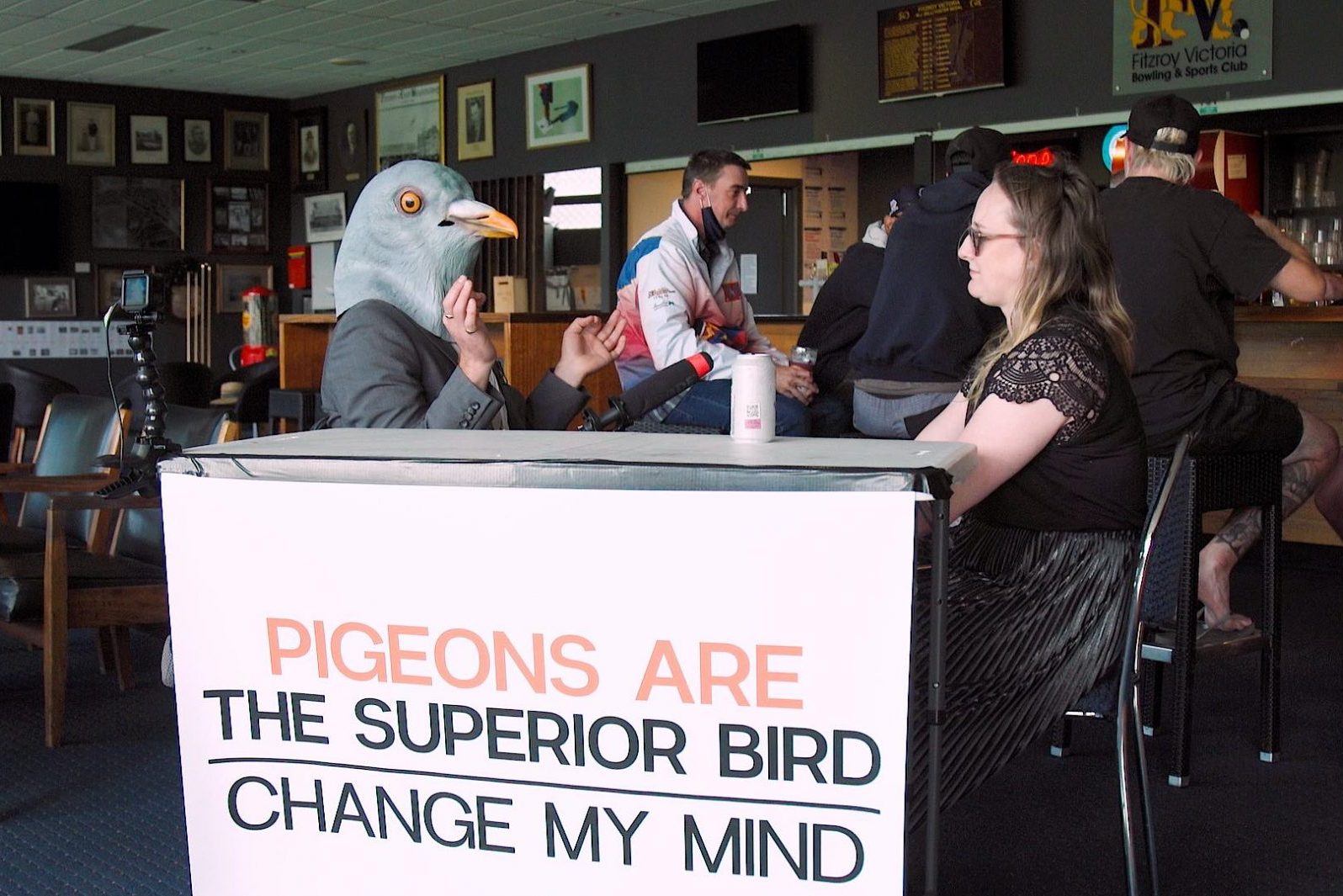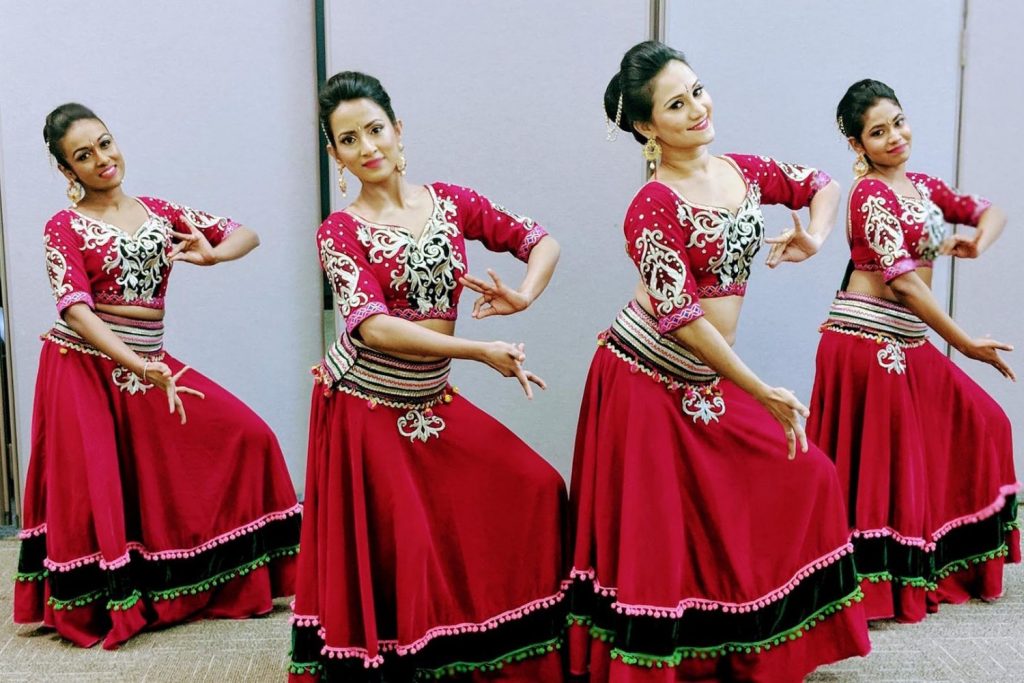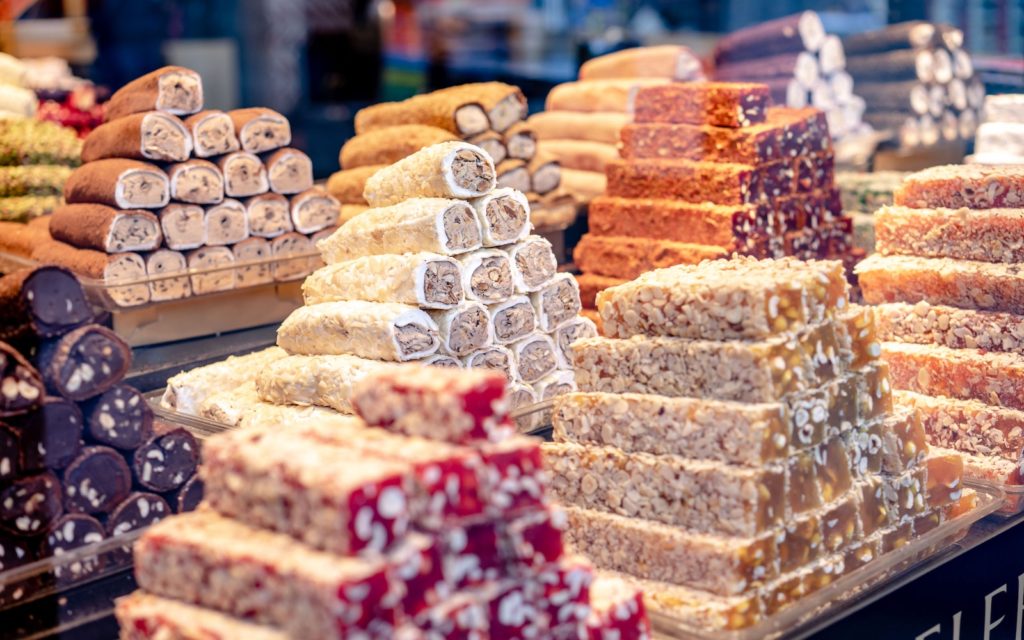We address the debate.
Some questions will never fail to keep us up at night: what is the meaning of life? Do aliens exist? Is there a pattern behind prime numbers? And, perhaps most importantly, are pigeons the greatest birds to ever exist?
Just last weekend, a pigeon enthusiast with a highly realistic pigeon mask set up shop at the Fitzroy Bowls Club daring people to debate with him about the superiority of pigeons.
After many heated discussions over a few particularly good lagers, little headway was made. That’s where we come in, to attempt to answer this deceptively simple question.
Although this article is written in partnership with our friends at Pigeon Lager, our very serious views on pigeon superiority are 100% our own and entirely incorruptible.
Round 1: Aesthetics
One of the most commonly cited reasons for disliking pigeons is their less-than-appealing outward appearance. People tend to favour birds they find attractive and disregard those who blend into the grey exterior of the concrete cities in which they dwell.
This is a downright disappointing line of thinking. Not only does it fly in the face of every mother’s plea to her children – not to judge a book by its cover – but it’s also based on factually-incorrect information.
Many people base their aesthetic conjecture on the common rock pigeon, which you’re most likely to have seen decorating statues in big cities. They have stout little grey bodies, almost holographic necks and a peculiarly amusing gait.
But these rock pigeons are just one of about 300 known species of pigeons. Pigeons come in all different shapes, sizes, and colours.
The unique aesthetic qualities of the pigeon species cement the pigeons as champions of body-positivity and diversity, and that’s not the end of their socially-minded thinking.
Round 2: Socio-Political Leaning
Pigeons are a highly intelligent species and – at their core – really are proponents of humanism.
A study by the Society for Experimental Biology found that untrained pigeons can recognise individual human faces, even withstanding a change of clothes.
Because of this facial recognition, pigeons can remember the actions of specific people. Being the anti-bullying bird they are, pigeons will avoid people who show them hostility.
Pigeons also believe in gender equality in parenting, with both the mother and father sharing incubation responsibilities once the eggs are laid. And this egalitarian parenting style continues into feeding.
While only mammals produce genuine milk, pigeons produce a similar nutrient-rich liquid with which to feed their offspring. This responsibility does not lay solely with the mother, both male and female pigeons produce this ‘crop milk’.
Pigeons are a socially-evolved species who prioritise the wellbeing of others regardless of their gender, size, or colour.
This stance will have progressives swooning, but there are plenty of reasons why the more traditional bird-lover will adore pigeons too.
Round 3: Historical Significance
The remarkable homing ability of pigeons has long been utilised by humans. As early as the 6th Century BC, pigeons have been delivering messages on behalf of our species.
They were used extensively during World War I and became an essential part of the war effort.
One of the most famous homing pigeons in WWI was a Blue Check hen named Cher Ami. A true war hero, Cher Ami delivered a message that saved 194 US soldiers, despite being shot.
Come World War II, the United Kingdom conscripted 25,000 homing pigeons. 32 pigeons were awarded the UK’s highest possible decoration given to animals, the Dickin Medal.
In earlier times, Julius Caesar used these swift fliers, as did Parisians during the Franco-Prussian War. These long-winged legends have a knack for making friends in high places.
View this post on Instagram
Round 4: Referees
From iconic boxer Mike Tyson to Serbian-American inventor Nikola Tesla, the humble pigeon is no stranger to celebrity.
Tyson’s deep love of pigeons dates back to his childhood when the pigeons perched atop the rooftops in Brooklyn helped a young Tyson deal with bullying.
Like Tyson, Tesla took a shining to the pigeons of New York City. His favourite was a white female, of which he – perhaps creepily – said, “I loved her as a man loves a woman, and she loved me.”
While Tesla only had eyes for one pigeon, Charles Darwin owned a diverse flock of the species during his time. Darwin was an avid member of various London pigeon clubs.
His love of the birds influenced his 1868 book, The Variation of Animals and Plants Under Domestication. While cats and dogs share a single chapter, pigeons occupy two whole chapters.
In conclusion
It’s impossible to objectively say whether pigeons are superior to all birds in existence, but there is plenty of evidence in favour of the argument. While we here at Beat comfortably and proudly say that the pigeon is a highly-respectable and underrated bird, there is nothing wrong with being less than that. And that’s what Pigeon Lager is all about – acknowledging that average is totally fine and accepted.
This article is created in celebration of PIGEON, a new Australian beer that celebrates everything average.
Never miss a story. Sign up to Beat’s newsletter and you’ll be served fresh music, arts, food and culture stories three times a week.







